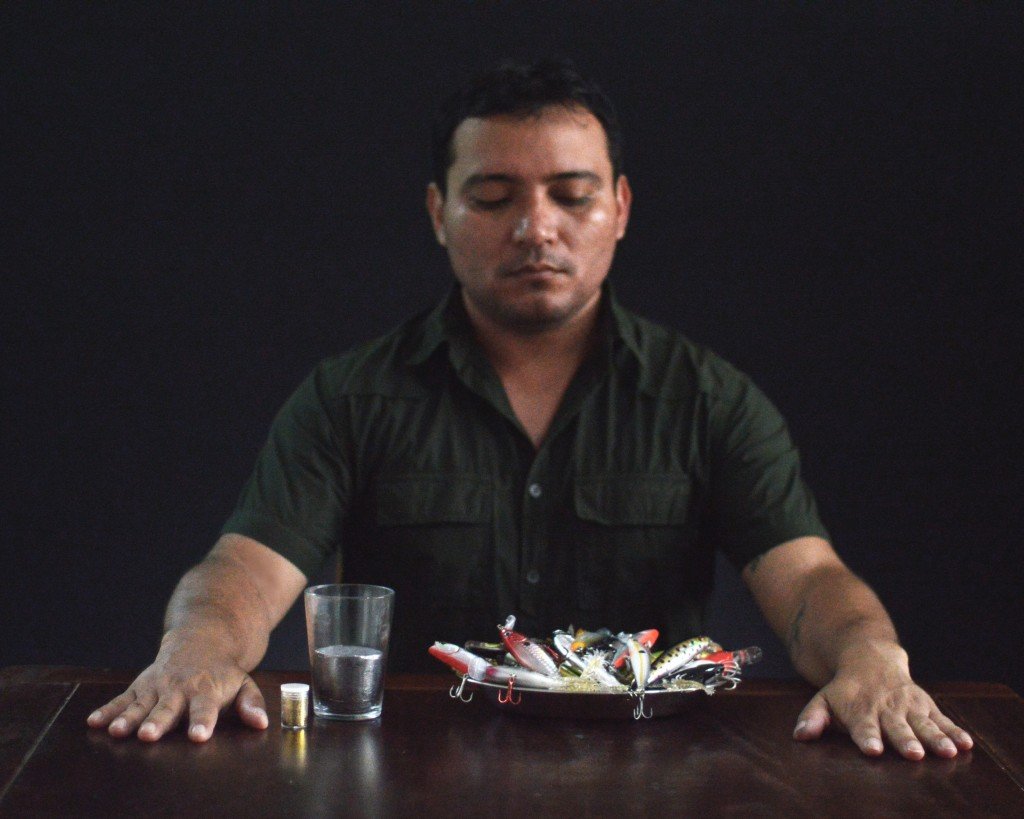Denilson Baniwa, Baniwa, born 1984
Arquiero Digital, 2017
This piece is based on an 1834 engraving made by Jean-Baptiste Debret, and so is fundamentally art of reclamation: This piece is an indigenous artist taking something that was originally created by colonizers to exoticize the people of the Amazon region and turning it into a representation of indigenous agency. The symbol of a digital symbol can be taken as representing the overall trend of new media in indigenous campaigns for greater sovereignty and environmental safety from deforestation and extractivism, and its position superimposed over a weapon indicates the artist’s belief in the strength of new media to protect the rainforest environment and traditional land relations, which may themselves be represented by the indigenous subject’s hunting. Label by Frank Kennedy


